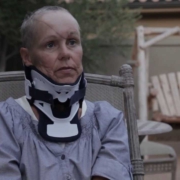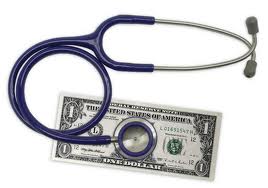At McMullin Injury Law all of the work we do focuses on personal injury law. Ultimately the goal of any personal injury case is to come to a fair and reasonable settlement—an amount of money that will compensate one party for injuries caused by the negligence of another party or parties. We wish we could tell you that coming to a settlement were as easy as making a phone call to the liability adjuster and coming to an agreement over the phone. The truth, however, is that the process of reaching a fair settlement requires meticulous documentation of everything that happens after an accident. And that is where we are able to help someone who has been involved in an accident because we work with injured parties and liability adjusters every day to resolve personal injury cases.
For each client with whom we work, we submit a document known industry-wide as a “Demand” to the insurance company of the at-fault party. The Demand is sometimes referred to as a “Settlement Offer.” That is, it is a document in which the claimant (our client) offers to settle this case for the proposed amount of money. Every Demand we submit is written for that particular client. For that reason, some Demands have pertinent information for that specific case which we don’t have room to describe here, but every Demand includes documentation of the following: an explanation of the facts of the accident, an itemization of all of the special damages, documentation of the pain and suffering our client experienced, and an offer of settlement.
The facts of the accident are clearly explained in a Demand. If a police report was generated, we include it along with any relevant photographs. Included in the facts are a description of the date and time of day of the accident, the names of all parties involved, and a “play by play” of what happened. This set of details is provided in all accident scenarios including dog bites, slip and fall cases, Worker’s Compensation cases (where needed) and car accidents. Essentially we lay out our clients’ cases from the very beginning so all the details are included.
We include an itemization of all of the medical bills to the liability adjuster. If you’ve been injured, you understand that there are multiple medical bills from many providers like the ambulance, the hospital where you were taken (not all people go to the hospital), doctors, physical therapists, radiologists, chiropractors, and other providers. We collect all of the bills from all of the providers and present the total sum to the insurance company. This comprises a list of “special damages,” or damages that in legal terms can be “specially proven” with a bill or a receipt.
We factor in our clients’ pain and suffering and a corresponding settlement amount to the liability adjuster as well. Understandably, it is impossible to attach a dollar amount on anyone’s level of suffering, but we include a reasonable amount with justification why we seek that amount.
The “Offer of Settlement” is the amount of money that is being proposed to settle a case. Think of it as our client essentially saying, “I offer to settle this case for this amount of money.” The settlement offer included in the Demand is derived not only based on your injuries and medical bills but also after we research what amounts have been awarded for similar types of cases both in and out of court. We are prepared to negotiate on behalf of our clients when necessary. It is important for you to know that we do not work for the insurance companies. We work for our clients, and represent their interests.
We do not send a “one size fits all” Demand when settling our clients’ cases. While each Demand includes a description of the facts of the accident, a detailed description of that specific client’s medical treatment, an itemization of the medical bills as well as an explanation of the amount demanded for pain and suffering, we include pertinent information that is relevant only to that case. Sometimes that includes a legal theory of liability. Sometimes we cite relevant statutes that apply in that situation. A great deal of time and attention is given to each Demand.
At our office we are skilled at documenting facts of an accident, understanding the law and applicable statutes as they pertain to specific accidents, and presenting a Demand to the liability insurance company so that your case can get settled. If you or someone you know has been involved in any kind of a personal injury accident, contact our office at (435) 673-9990 for a free consultation. We can show you your options and answer your questions.
At McMullin Injury Law, we are…In Your Community and On Your Side.





